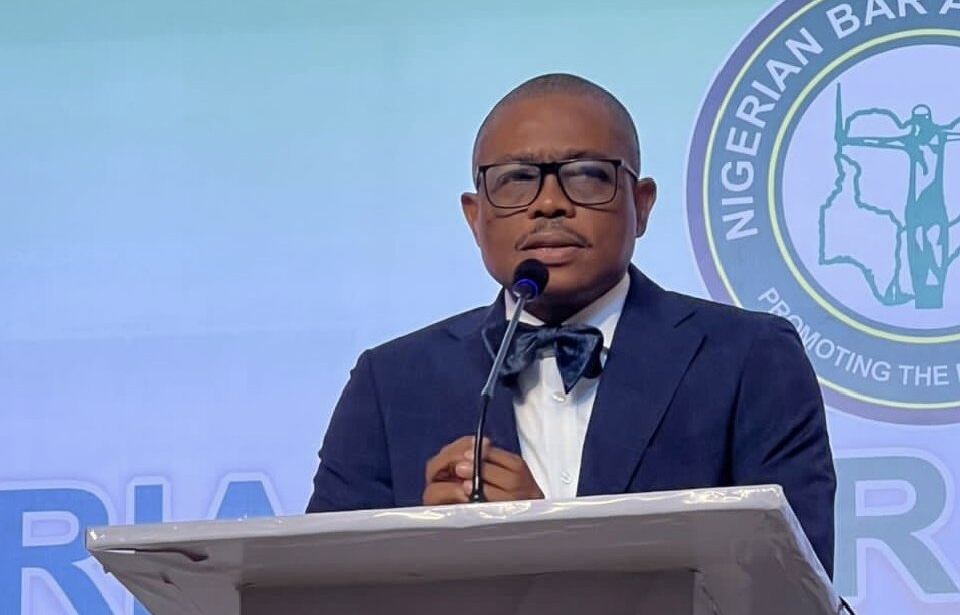Senate on Unresolved Governance Questions from Constitution Amendments

Prominent stakeholders from across the South-West region of Nigeria converged in Lagos for a zonal public hearing on the review of the 1999 Constitution. This significant event highlighted the Senate's observation that previous attempts to amend the Constitution had failed to address several fundamental governance challenges facing the nation. Despite multiple efforts to introduce state police, enshrine roles for traditional institutions, and devolve more powers to sub-national governments, these initiatives often did not secure the required two-thirds approval from State Assemblies.
Senator Barau I. Jibrin, the Deputy President of the Senate and Chairman of the Senate Committee on the Review of the 1999 Constitution, made these crucial observations during the public hearing held at Watercress Hotel, Ikeja. Notable dignitaries in attendance included Lagos State Governor Babajide Sanwo-Olu, represented by his deputy Dr. Obafemi Hamzat, Southwest Chairman of the Conference of Speakers of State Legislatures Adeoye Aribasoye, and several traditional rulers such as the Alaafin of Oyo, Ooni of Ife, Ewi of Ado-Ekiti, Ayangburen of Ikorodu, Olowo of Owo, Olu of Ilaro, Oba Adewale Shotobi, and Oluyin of Iyin-Ekiti.
Since Nigeria's return to democratic rule in 1999, the National Assembly has undertaken five separate attempts to amend the Constitution, resulting in piecemeal changes to the grundnorm. Senator Jibrin, represented by the Senate Leader and Vice Chairman of the Committee, Senator Opeyemi Bamidele, emphasized that these previous amendments had not effectively resolved key national issues. He stated that while the National Assembly enacted five alteration acts addressing governance, institutional strengthening, and national aspirations, fundamental national questions remained unresolved, many of which extend beyond routine law-making.
Jibrin further disclosed that the committee had received hundreds of memoranda from citizens and stakeholders nationwide concerning unresolved issues. These issues persist largely due to a lack of national consensus and the dynamic nature of governance. He identified key areas that require decisive action, including electoral reforms and adjudication, judicial reforms (particularly in case management and administration), enhancements to local government administration, formal roles for traditional institutions, gender equity and inclusion in governance, devolution and distribution of powers, and concerns related to national security and policing. The committee has reviewed and drafted these memoranda into bills, which are now presented for public input and discussion, stressing that the process is guided by best legislative practices, integrity, open-mindedness, and patriotism.
In his remarks, Governor Sanwo-Olu commended the Senate Committee for its efforts, asserting that Nigeria's challenges transcend mere legal frameworks and touch upon the nation's identity and shared aspirations. He outlined critical areas necessitating reform, including genuine federalism and power devolution, strengthening local governments, the potential creation of new states, electoral and judicial reforms, increased participation of women and youth in politics, and public security, particularly the imperative for state police. The Governor underscored that the current constitutional review process is not just another historical chapter but a vital opportunity for the people of Lagos and the South-West to shape Nigeria's supreme law. He urged approaching the task with fairness, equity, and justice, by actively listening to all voices.
Adeoye Aribasoye, representing the Conference of Speakers of State Legislatures, pledged the unwavering support of South-West state assemblies for the ongoing constitutional review. He assured that the State Houses of Assembly would give due consideration to all proposals transmitted to them by the National Assembly, treating these bills in the national interest. The collective sentiment was that the Constitution must truly reflect the hopes, fears, and dreams of all Nigerians, moving beyond being a document solely for the elite.









